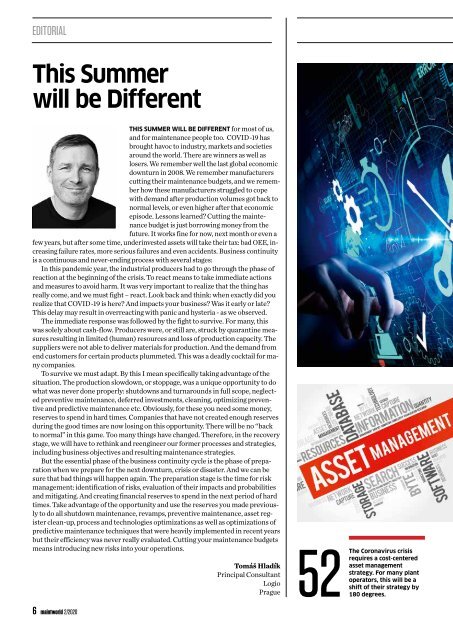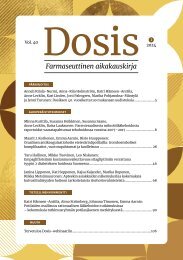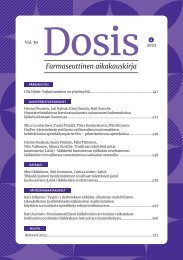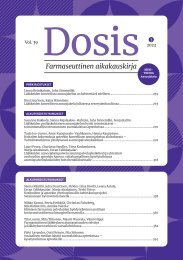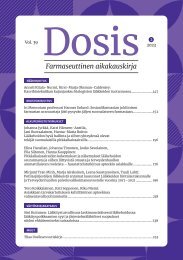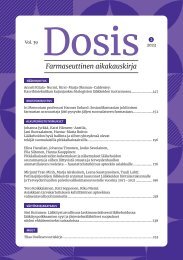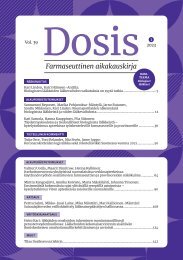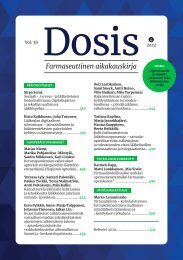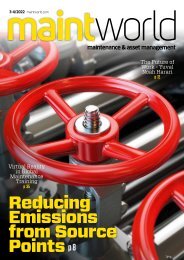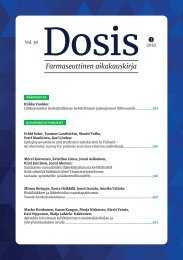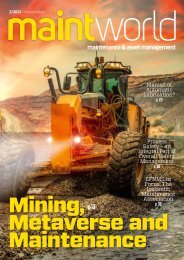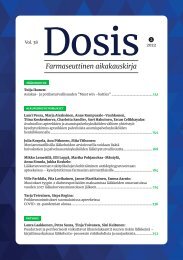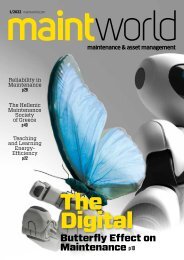Maintworld 2/2020
To the Bravest Asset Managers – Living and working in the post-corona era ADAPTIVE ALIGNMENT - DATA-DRIVEN SPARE PARTS MANAGEMENT - MANAGING THE CRISIS EFFECTIVELY
To the Bravest Asset Managers – Living and working in the post-corona era
ADAPTIVE ALIGNMENT - DATA-DRIVEN SPARE PARTS MANAGEMENT - MANAGING THE CRISIS EFFECTIVELY
You also want an ePaper? Increase the reach of your titles
YUMPU automatically turns print PDFs into web optimized ePapers that Google loves.
EDITORIAL<br />
This Summer<br />
will be Different<br />
THIS SUMMER WILL BE DIFFERENT for most of us,<br />
and for maintenance people too. COVID-19 has<br />
brought havoc to industry, markets and societies<br />
around the world. There are winners as well as<br />
losers. We remember well the last global economic<br />
downturn in 2008. We remember manufacturers<br />
cutting their maintenance budgets, and we remember<br />
how these manufacturers struggled to cope<br />
with demand after production volumes got back to<br />
normal levels, or even higher after that economic<br />
episode. Lessons learned? Cutting the maintenance<br />
budget is just borrowing money from the<br />
future. It works fine for now, next month or even a<br />
few years, but after some time, underinvested assets will take their tax: bad OEE, increasing<br />
failure rates, more serious failures and even accidents. Business continuity<br />
is a continuous and never-ending process with several stages:<br />
In this pandemic year, the industrial producers had to go through the phase of<br />
reaction at the beginning of the crisis. To react means to take immediate actions<br />
and measures to avoid harm. It was very important to realize that the thing has<br />
really come, and we must fight – react. Look back and think: when exactly did you<br />
realize that COVID-19 is here? And impacts your business? Was it early or late?<br />
This delay may result in overreacting with panic and hysteria - as we observed.<br />
The immediate response was followed by the fight to survive. For many, this<br />
was solely about cash-flow. Producers were, or still are, struck by quarantine measures<br />
resulting in limited (human) resources and loss of production capacity. The<br />
suppliers were not able to deliver materials for production. And the demand from<br />
end customers for certain products plummeted. This was a deadly cocktail for many<br />
companies.<br />
To survive we must adapt. By this I mean specifically taking advantage of the<br />
situation. The production slowdown, or stoppage, was a unique opportunity to do<br />
what was never done properly: shutdowns and turnarounds in full scope, neglected<br />
preventive maintenance, deferred investments, cleaning, optimizing preventive<br />
and predictive maintenance etc. Obviously, for these you need some money,<br />
reserves to spend in hard times. Companies that have not created enough reserves<br />
during the good times are now losing on this opportunity. There will be no “back<br />
to normal” in this game. Too many things have changed. Therefore, in the recovery<br />
stage, we will have to rethink and reengineer our former processes and strategies,<br />
including business objectives and resulting maintenance strategies.<br />
But the essential phase of the business continuity cycle is the phase of preparation<br />
when we prepare for the next downturn, crisis or disaster. And we can be<br />
sure that bad things will happen again. The preparation stage is the time for risk<br />
management: identification of risks, evaluation of their impacts and probabilities<br />
and mitigating. And creating financial reserves to spend in the next period of hard<br />
times. Take advantage of the opportunity and use the reserves you made previously<br />
to do all shutdown maintenance, revamps, preventive maintenance, asset register<br />
clean-up, process and technologies optimizations as well as optimizations of<br />
predictive maintenance techniques that were heavily implemented in recent years<br />
but their efficiency was never really evaluated. Cutting your maintenance budgets<br />
means introducing new risks into your operations.<br />
6 maintworld 2/<strong>2020</strong><br />
Tomáš Hladík<br />
Principal Consultant<br />
Logio<br />
Prague<br />
52<br />
The<br />
Coronavirus crisis<br />
requires a cost-centered<br />
asset management<br />
strategy. For many plant<br />
operators, this will be a<br />
shift of their strategy by<br />
180 degrees.


